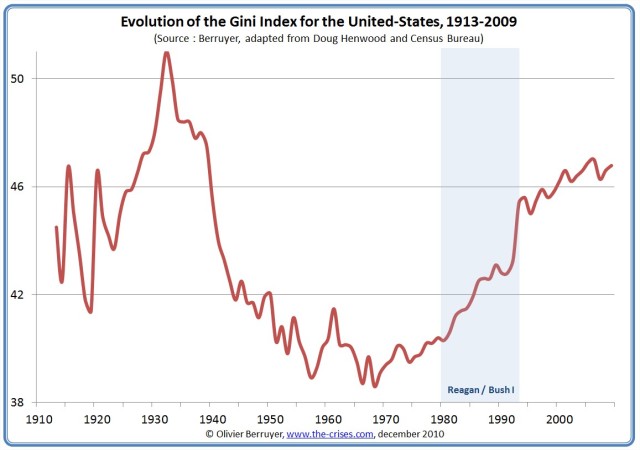I can tell a straightforward, partisan story about inequality in the United States:
- The colonial United States was a remarkably egalitarian place — for white people, at least. But as the United States industrialized, from the Civil War through the Gilded Age and all the way until the Great Depression, the government made few efforts to redistribute wealth, and inequality grew and grew.
- Franklin Delano Roosevelt’s New Deal policies reduced inequality dramatically and established a bipartisan consensus in favor of egalitarian redistribution that lasted for decades. Democrats controlled the White House and Congress for most of these years, and even the two Republican presidents elected during this time — Eisenhower and Nixon — basically accepted the New Deal consensus. During this time, inequality remained low and even declined slightly.
- But backlash against the Civil Rights Act ultimately shattered public confidence in Big Government, eventually leading to the election of Ronald Reagan in 1980. After this point inequality began to rise again, such that today we once again see levels of inequality we haven’t seen since the Gilded Age.
This is a common story — for example, it’s pretty much exactly the one Paul Krugman tells in The Conscience of a Liberal.
